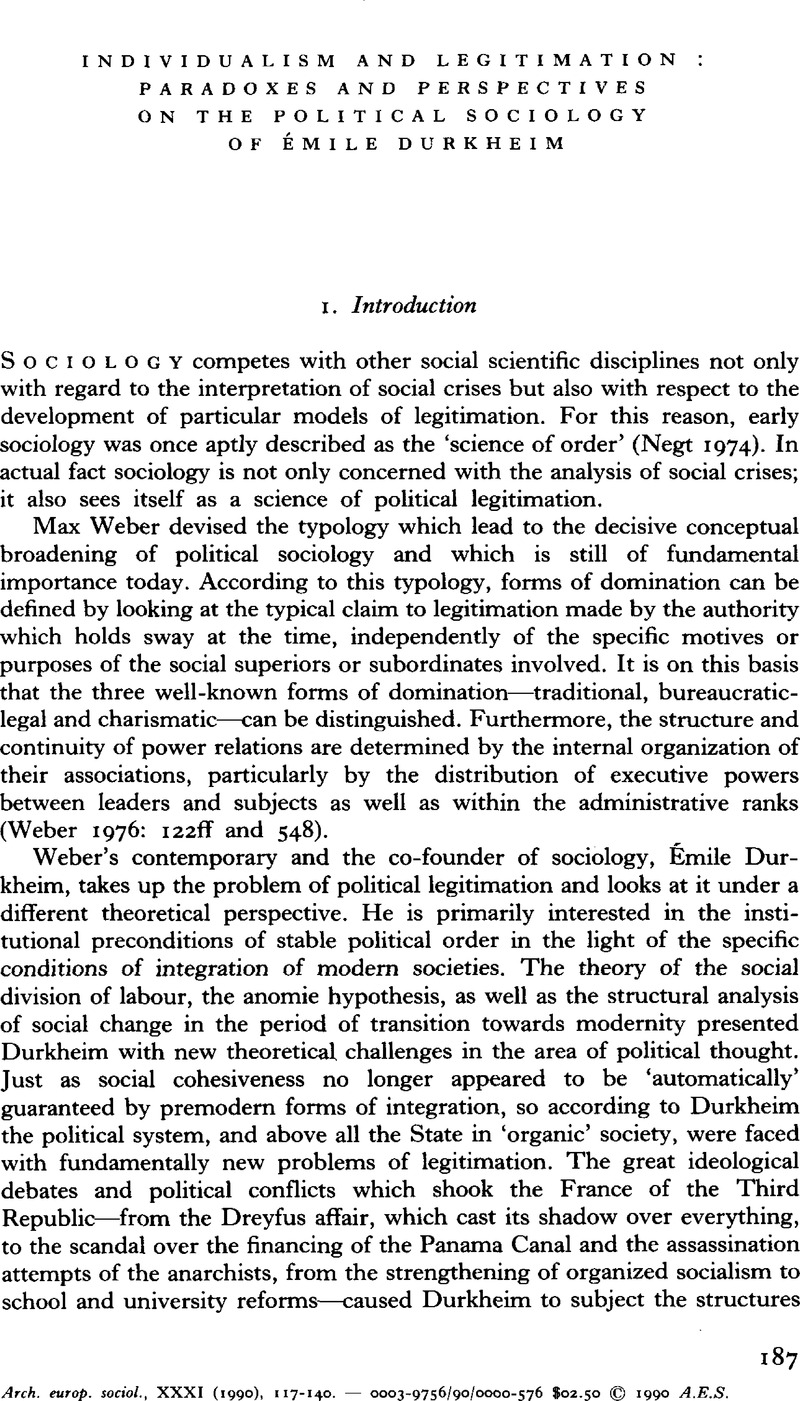Published online by Cambridge University Press: 28 July 2009

(1) This is shown clearly in Marina Cedronio's study (Cedronio 1989), in which Durkheim's activities as a scholar, pedagogue and political journalist are viewed against the background of the political events of his time and some of the conventional views of Durkheim are revised in the process.
(2) It is occasionally disputed that Durkheim's political sociology deals with the problem of legitimation at all. See, for example, Giddens 1971a, p. 509; Birnbaum 1976, p. 247 and Marske 1987, p. 12. Marina Cedronio discusses the problem of institutional legitimacy in Durkheim in the context of the abovementioned analysis of the political history of the Third Republic (Cedronio 1989, esp. pp. 59–1O4).
(3) The view that Durkheim's political writings are marked by a normativism which is untouched by sociological currents and partly determined by a naive sociopolitical idealist reformism seems to have become a commonplace in more recent Durkheim scholarship (e.g. Giddens 1977; Müller 1983; Marske 1987). It is sometimes denied that Durkheim's work has any real contribution to make to political sociology (e.g. Hawkins 1986; Fabvre 1982; and, with reference to Durkheim's legal theory, Lukes Scull 1983).
(8) ‘Une société formée de clans juxtaposés, de villes ou de villages plus ou moins indépendants, ou de groupes professionals nombreux autonomes les uns vis-à-vis des autres, sera à peu près aussi compressive de toute individualité que si elle était faite d'un seul clan, d'une seule ville, d'une seule corporation [… Si] aucun contrepoids ne neutralise leur action, chacune d'elles tendra à absorber en elle ses membres’ (Durkheim 19692, 97).
(9) On the earliest praxis-oriented further developments of Durkheim's model of professional groups, see the work of Christian Guelich (1989).
* Translation from German by Anna Bankowski. I greatly appreciate the helpful comments of Steven Lukes on a previous version of this paper.